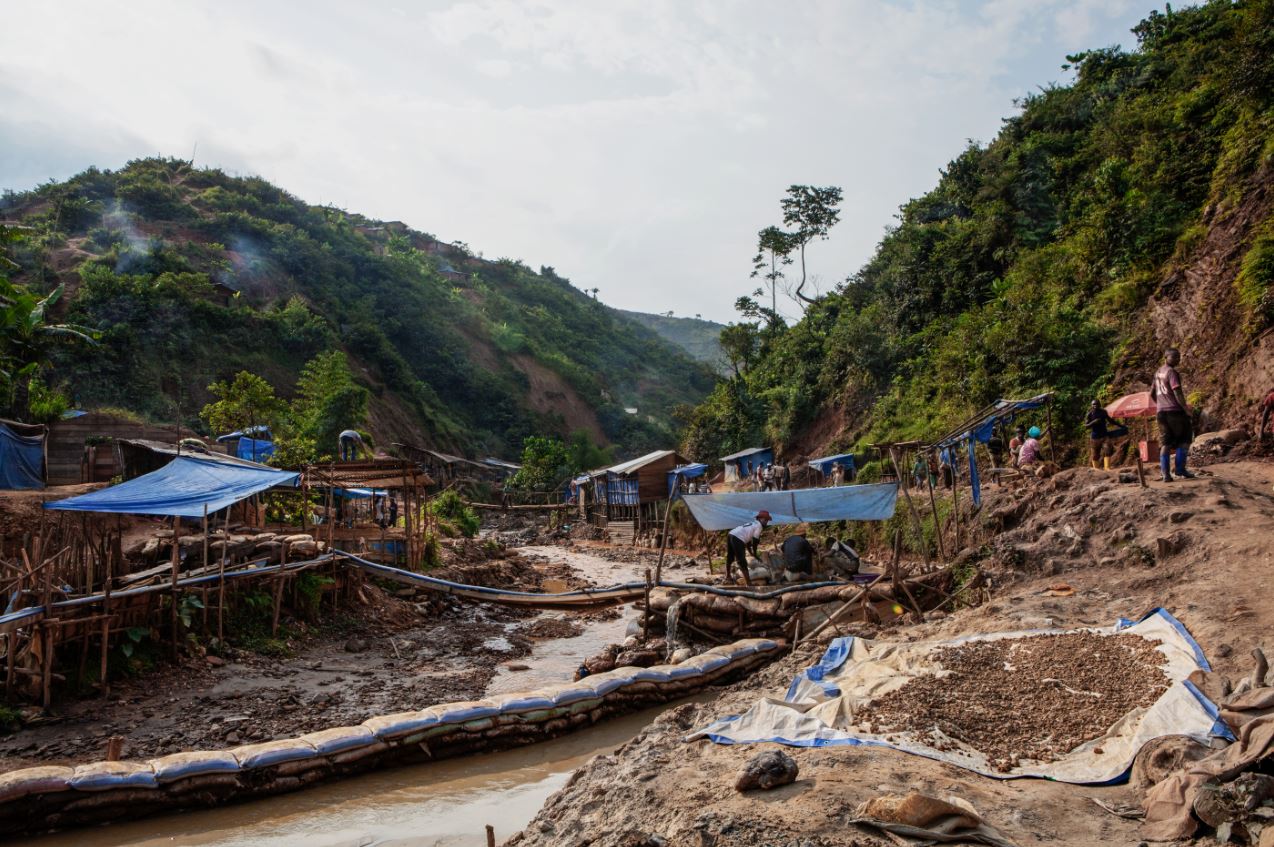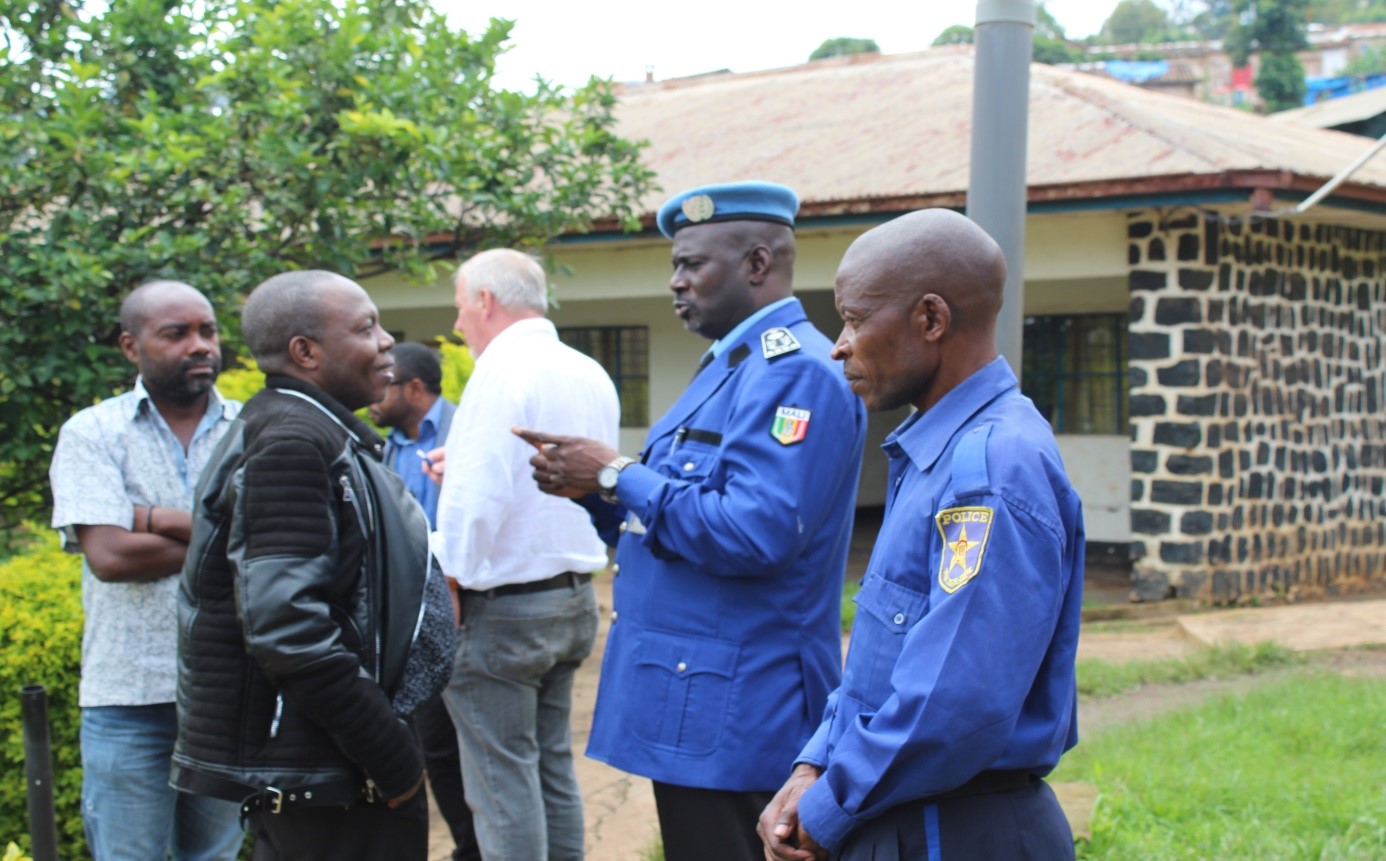SSG/R CHAMPIONS: Meet the Kajembas
Putting communities at the heart of security governance in the mining sector of South Kivu
Before becoming the head of the OGP - Observatoire Gouvernance et Paix, Eric Kajemba was a radio journalist. He spent many hours listening to people’s stories and reported with passion about the democratization process in his country, the Democratic Republic of the Congo. He came to understand that sustainable peace and economic development is difficult to achieve without good governance, and the full participation of local communities.
After years as a frontline witness to the many challenges faced by ordinary citizens, Kajemba began looking for another way to improve their lives and increase the reach of his words and actions. One lucky day he met another journalist who shared his convictions, and who later became his wife.
Together with the support of friends, in 2003 Eric and Christine Kajemba started the OGP - Observatoire Gouvernance et Paix. The mining industry was, and is still today, the heart of the Congolese economy; its production represents the largest source of export income for the country. It affects the livelihoods and quality of life of millions. So the Observatory made its mission to strive for the mining industry to be free from conflict, human rights abuses, and corruption.

Photo credits: Ines Della Valle
PUT LOCAL COMMUNITIES’ NEEDS FIRST
“It is a mistake to think that local communities have nothing to say. Our experience has shown that without including them in the discussion, any project on the ground will fail.”
Eric Kajemba
Every day, the Kajembas promote the importance of listening to the local communities. Their most significant success in ensuring the interests of local communities are included in high-level discussions, has been in relation to the Dodd-Frank Act.
The American law was enacted in 2010 to reorganize the US financial regulatory system, in part to better protect consumers. It included a provision forcing US companies to check their supply chains for tin, tungsten, tantalum or gold that comes from the Congo or its neighbors, in order to show that they are not funding armed groups or human rights abuses. As a result, many companies decided to no longer purchase minerals from the DRC. While the purpose of the act was to break the link between conflict and minerals, the consequences were dreadful for the population. “The mining industry is essential to the social and economic life of the country,” according to Kajemba. “In DRC, in many places, without mines there is no life.”
The Observatory was among the first to alert the international community that this law was a big problem for many communities. They doggedly advocated for a solution that would allow the companies to keep operating in the DRC, while maintaining good conditions for the local people who lived around the mines. In front of the US Senate, in meetings of the Organisation for Economic Co-operation and Development, they successfully demonstrated that new laws and regulations aren’t enough.
“We must not only meet the international requirements of traceability and duty of care. It is necessary. But without encouraging local development, what is the point?” says Kajemba.
DIALOGUE, NEUTRALITY AND TRANSPARENCY
Eric and Christine summarize the success of the Observatory in three words: dialogue, neutrality, and transparency. The situation in DRC is complex and unstable. Local actors from all sides of the situation request the support of the Kajembas and the Observatory, knowing they are impartial and can be trusted. They work hard to create win-win solutions, believing that for a solution to be sustainable, everyone’s interests must be represented.

Training with mining police officers in partnership with the Congolese National Police and the United Nations Police in DRC.
This new level of cooperation in South Kivu lead to more effective and accountable management of the basket fund, the money set aside by mining companies to fund development in the communities in which they operate. Working together, the government, the private sector, and the Observatory created local development plans that truly served the priorities of the communities, such as new schools and medical centers. It also led to the creation of multi-stakeholder groups, with the support of DCAF, in which public and private security companies, local authorities, and community members regularly meet to discuss any issues of conflict around the mining sites and resolve problems before they get out of hand.
“Working with DCAF has proved that civil society organizations can engage the public and the private sector into constructive dialogues and reduce security and human rights violations,” says Kajemba.
STORIES FROM THE FIELD
In celebration of DCAF’s 20th anniversary, we are highlighting some of our many partners who have made extraordinary contributions to the field of security sector reform and good governance in their countries.
 Share on Facebook
Share on Facebook Share on Linkedin
Share on Linkedin Share on Twitter
Share on Twitter